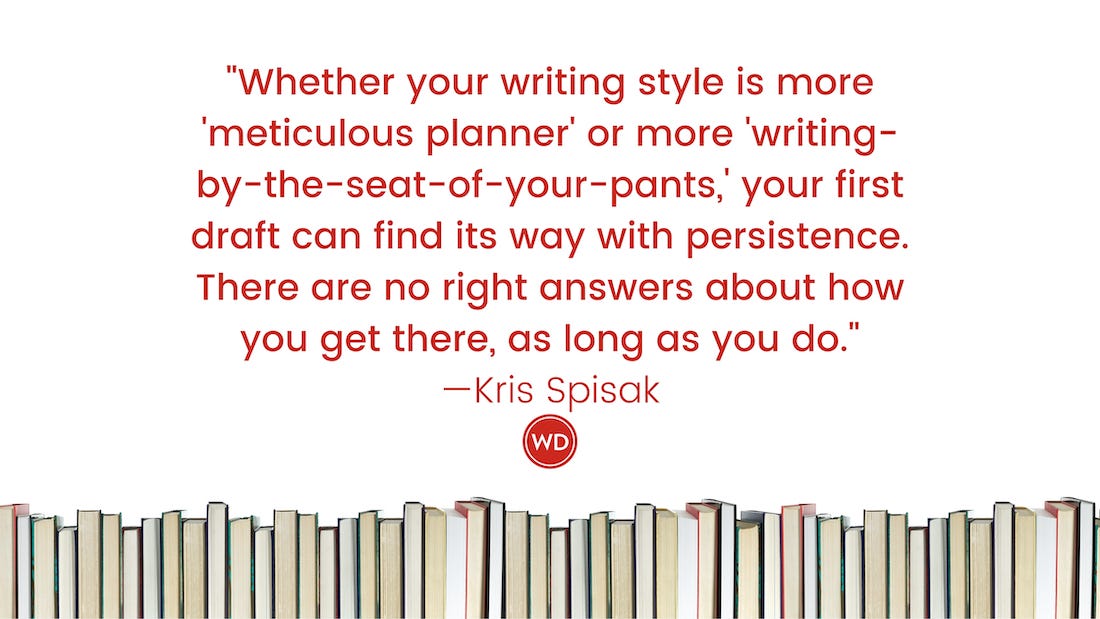Follow These Rules For Stronger Writing
Strong prose is a matter of practice and discipline and conscious awareness of the words you put on the page. There are rules for effective writing, and you can save yourself a lot of unnecessary grief if you take the time to incorporate them into your writing psyche. by Nancy Lamb
Strong prose is a matter of practice and discipline and conscious awareness of the words you put on the page. There are rules for effective writing, and you can save yourself a lot of unnecessary grief if you take the time to incorporate them into your writing psyche.
These rules can’t make a good writer a brilliant one. But they can make an average writer a good writer, and a good writer better. They can turn a mediocre story into a memorable one. And they’re a great guide for revising your work.
1. NEVER LET THE TRUTH GET IN THE WAY OF YOUR STORY. Creative writing is just that: creative. If the truth prevents you from telling your fictional story effectively, get rid of the facts and invent something that makes the story wor
2. NEVER USE TWO WORDS WHEN ONE WILL DO. Less is more. Usually one powerful word will do the same job as two weaker ones. Instead of:
Andrea stared at the horrible, slithering mass of snakes.
Write:
Andrea stared at the writhing mass of snakes.
3. USE THE ACTIVE VOICE. The difference between adequate prose and good prose is the difference between passive and active voice. Make certain that active verbs drive your prose. Instead of:
There were a great number of dead bodies on the ground.
Write:
Dead bodies littered the ground.
4. USE PARALLEL CONSTRUCTION. Parallel construction allows you to write in the most interesting, economical fashion by aligning your verb tenses and uniting phrases with a common construction. Instead of:
The vampire bared his teeth and then, raising his claws to sharpen them, he started licking his chops. “Gotcha!” he said with a grin.
Write:
The vampire bared his teeth, sharpened his claws and licked his chops. “Gotcha!” he said with a grin.
5. KEEP RELATED WORDS TOGETHER. Linguistic studies have shown that most of us have a natural instinct for the placement of adjectives. We don’t say, “I have a blue shiny car.” Instead, we say, “I have a shiny blue car.” The same principle should be applied to sentences you write. Instead of:
Frankenstein noticed a large bloodstain in the rug that was in the middle.
Write:
Frankenstein noticed a large bloodstain in the middle of the rug.
6. REPLACE ADJECTIVES AND ADVERBS WITH VIVID NOUNS AND ACTIVE VERBS. Cultivate the use of strong verbs and concrete nouns. They are the most powerful tools in a writer’s arsenal. Instead of:
Since the day Barbara met the werewolf, she felt very scared and frightened.
Write:
Since the day she met the werewolf, terror haunted Barbara’s heart.
There is no surer way to weaken your prose than to pepper it with adverbs. There are, of course, times when the adverb is appropriate and necessary. Choose those times carefully.
She looked longingly and lovingly at the chocolate.
Or:
She looked at the chocolate with longing and love.
Or better:
Her eyes consumed the chocolate.
7. DON’T OVEREXPLAIN. Give your reader the benefit of the doubt and allow him to intuit the meaning of the dialogue, rather than read about it. Instead of:
“I’m sorry,” Peter said consolingly.
Write:
“I’m sorry,” Peter said.
8. WRITE CINEMATICALLY. When you write, think visually. Language holds endless possibilities for a creative approach to expressing an idea.
Eddy Peters exemplified this when he wrote, “Not only does the English Language borrow words from other languages, it sometimes chases them down dark alleys, hits them over the head and goes through their pockets.”
9. VARY YOUR SENTENCE STRUCTURE. Using nothing but noun-verb declarative sentences makes for dull reading. Break up the monotony. Instead of:
John walked to the closet. He opened the door. He took one look inside and he screamed.
Write:
John walked to the closet and opened the door. Taking one look inside, he screamed.
10. CREATE INTEREST BY MIXING IDEAS. Mixing alien ideas and drawing unlikely parallels will make the writing fresh
She was the kind of girl who collected men like she collected speeding tickets. They both happened when she wasn’t paying attention.
11. LISTEN TO THE MUSIC OF THE WORDS. The best prose has a rhythm to it. Honor that rhythm. There have been days when I’ve spent half an hour searching the thesaurus for a word that has three syllables instead of two. Sometimes the difference is subtle, but it can make the reading experience more satisfying. Instead of:
Some writers catch on to the rhythm and they delight in the sound of the music as soon as they learn to write.
Write:
Some writers feel the rhythm and hear the music from the moment they learn to write.
12. AVOID WORD REPETITION. There’s nothing more tiresome for a reader than seeing the same tiresome words over and over in the same paragraph. This creates the overall impression that the reader is reading the same repetitive, tiresome prose over again and it tires out the reader. Note: The exception to this rule—the critical exception—is when you repeat a word for emphasis.
13. BEWARE OF IT. Grammarians call it an “obscure pronominal reference.” That’s when it is left dangling in a sentence without a clear reference to whom or what it refers. Double-check for dangling its. Where you find:
Kathy couldn’t believe it was happening.
Clarify:
Kathy couldn’t believe her sister was finally accepting the blame.
This article appeared in the March/April issue of Writer's Digest. Click here to order your copy in print. If you prefer a digital download of the issue, click here.








